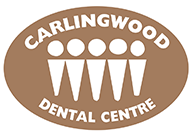Are you starting to notice some tenderness around a tooth and wondering if it might be a cavity? The truth is, even with proper dental hygiene and regular visits with the dentist, cavities can still develop. This can be influenced by diet and even genetics. Many people often fear they have a cavity when there’s really nothing there, and conversely, others may not notice anything until it develops into something more severe. So the next time you’re wondering, “how do I know if I have a cavity,” here are some tips to help you determine if there is, in fact, something to be concerned about.
Here’s What To Look For
Cavities can be detected in different ways since they can cause a range of symptoms depending on the severity. Here are some of the most common signs to be aware of:
Sensitivity When Eating
One of the first telltale signs is often tenderness around a particular tooth. You may notice a slight tinge of sensitivity when eating or drinking items that are particularly high in sugar, like pop, fruit juice, popsicles, or candy. Even a slight sense of tenderness can indicate the early stages of a cavity.
Noticeable Pain
Do you experience painful sensations when biting down on hard foods? If so, tooth decay could be an issue. Tooth decay or infection can impact the root and nerve endings of the tooth, triggering pain when biting down.
Foods Getting Stuck In Teeth
Though seemingly harmless, having food particles constantly sticking along the top surface of your tooth can highlight soft spots, which are what dentists look for when they’re poking around during your checkup. These soft spots develop when there’s a build of plaque that weakens the tooth enamel. And as food gets stuck in these soft spots or grooves, it can lead to a cavity and infection if not cleaned and dealt with properly.
Feeling Rough Grooves Along Your Tooth
When you move your tongue along the top surface of your teeth, do you notice any rough or sharp areas? If so, this can be another red flag to be aware of as it can pinpoint potential holes that are developing, which are common during the early stages of a cavity.
Bad Smell Or Taste In Your Mouth
Having persistent bad breath can be an indication that there’s something happening in your mouth or body that needs attention. A buildup of food particles from a lack of flossing or poor dental hygiene can cause bacteria to thrive inside your mouth. This can lead to a bad odour and taste in the mouth. If you notice this consistently, even after you brush, visit your dentist or mention it during your next checkup.
Keep your oral health in check by booking your next appointment at Carlingwood Dental. From emergency dental services to expert cosmetic dentists and more – we provide a comprehensive list of dental services for both you and your family. Get in touch today!


